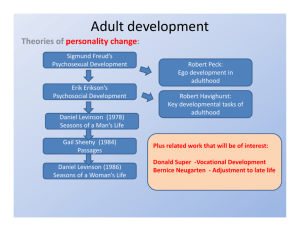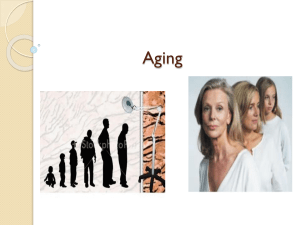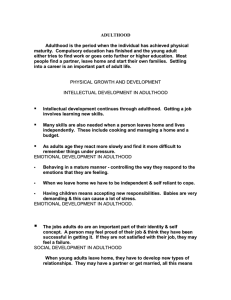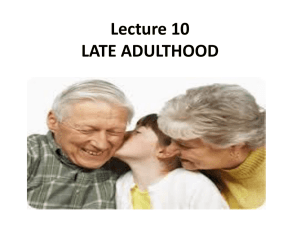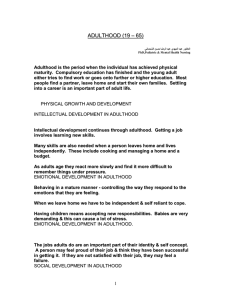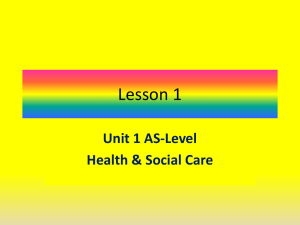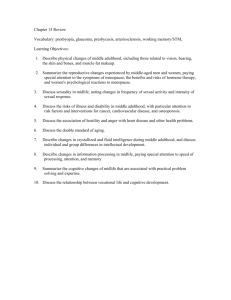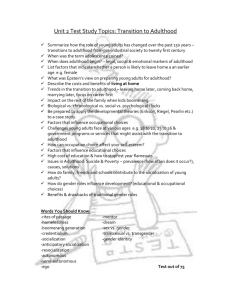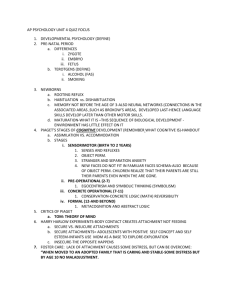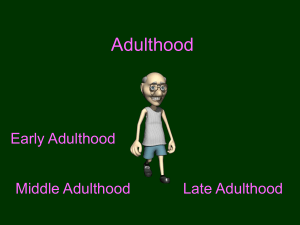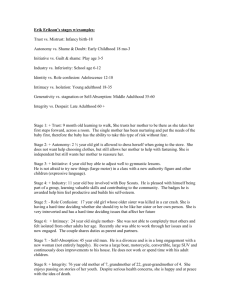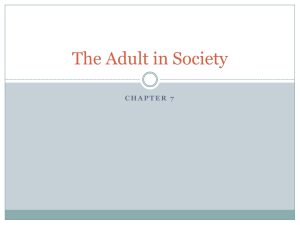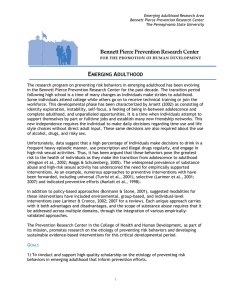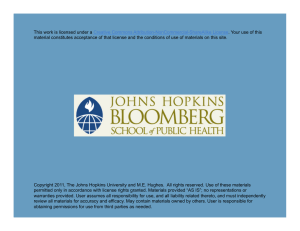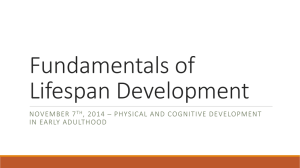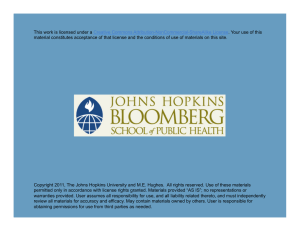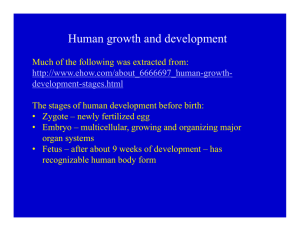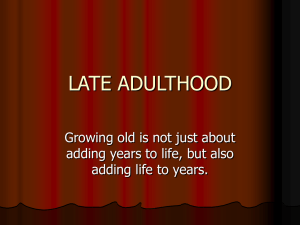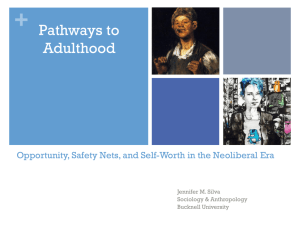Practice Test Questions 1 – Developmental Psychology
advertisement
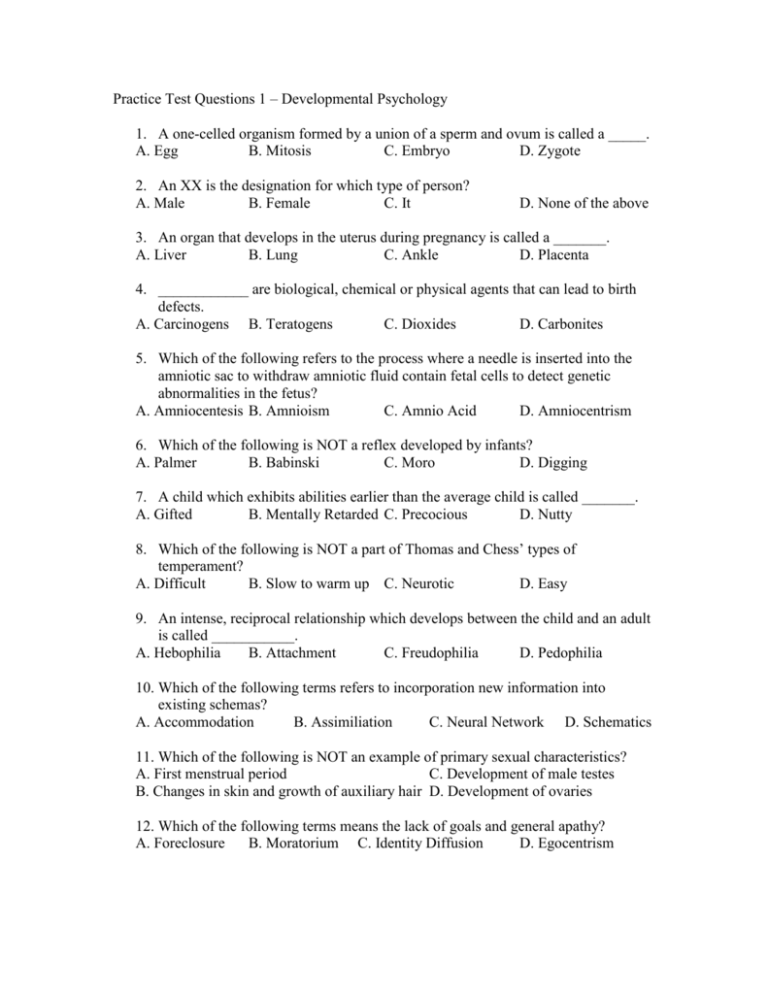
Practice Test Questions 1 – Developmental Psychology 1. A one-celled organism formed by a union of a sperm and ovum is called a _____. A. Egg B. Mitosis C. Embryo D. Zygote 2. An XX is the designation for which type of person? A. Male B. Female C. It D. None of the above 3. An organ that develops in the uterus during pregnancy is called a _______. A. Liver B. Lung C. Ankle D. Placenta 4. ____________ are biological, chemical or physical agents that can lead to birth defects. A. Carcinogens B. Teratogens C. Dioxides D. Carbonites 5. Which of the following refers to the process where a needle is inserted into the amniotic sac to withdraw amniotic fluid contain fetal cells to detect genetic abnormalities in the fetus? A. Amniocentesis B. Amnioism C. Amnio Acid D. Amniocentrism 6. Which of the following is NOT a reflex developed by infants? A. Palmer B. Babinski C. Moro D. Digging 7. A child which exhibits abilities earlier than the average child is called _______. A. Gifted B. Mentally Retarded C. Precocious D. Nutty 8. Which of the following is NOT a part of Thomas and Chess’ types of temperament? A. Difficult B. Slow to warm up C. Neurotic D. Easy 9. An intense, reciprocal relationship which develops between the child and an adult is called ___________. A. Hebophilia B. Attachment C. Freudophilia D. Pedophilia 10. Which of the following terms refers to incorporation new information into existing schemas? A. Accommodation B. Assimiliation C. Neural Network D. Schematics 11. Which of the following is NOT an example of primary sexual characteristics? A. First menstrual period C. Development of male testes B. Changes in skin and growth of auxiliary hair D. Development of ovaries 12. Which of the following terms means the lack of goals and general apathy? A. Foreclosure B. Moratorium C. Identity Diffusion D. Egocentrism 13. Which of the following lifespan stages is characterized by greatest health, maximum strength and greatest sensory sensitivity? A. Adolescence B. Late adulthood C. Middle Adulthood D. Early Adulthood 14. Which of the following is NOT a reason why some people choose to delay having children? A. Greater savings power C. Higher health risks B. Career goals D. Better education for children 15. Which of the following is a TRUE statement concerning parental styles? A. Authoritarian emphasizes a reciprocal relationship B. Permissive emphasizes child obedience through rules and punishments C. Authoritative exercises little control over the child D. All are false statements concerning parental styles 16. Which of the following terms refers to hearing loss for high frequencies? A. Presbyopia B. Menarche C. Presbycusis D. Osteoporosis 17. The clouding of the lens refers to a __________. A. Cataract B. Glaucoma C. Osteoporosis D. Dementia 18. Which of the following is NOT a part of the Kubler-Ross Model? A. Denial B. Anger C. Acceptance D. Love 19. Which of the following terms refers to the behavioral changes associated with bereavement? A. Grief B. Mourning C. Hospice D. Love 20. Which of the following types of studies refers to participants, often of different ages, that are test and observed during a limited time span? A. Cross-sectional B. Longitudinal C. Cohort D. Case

